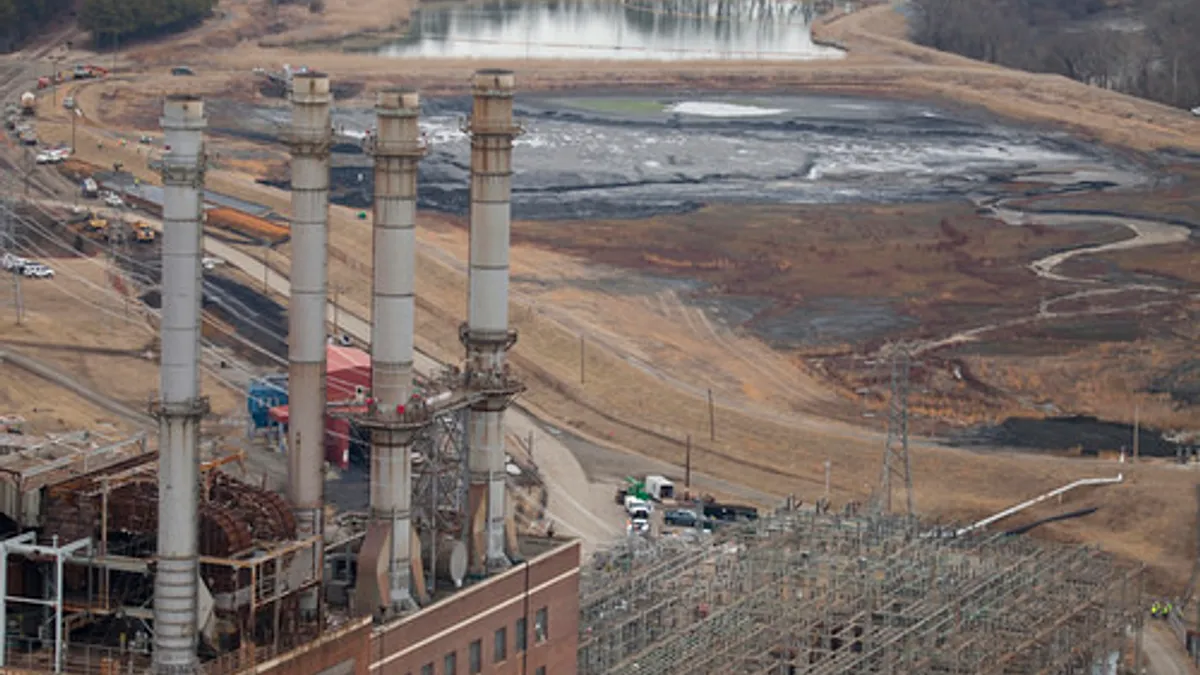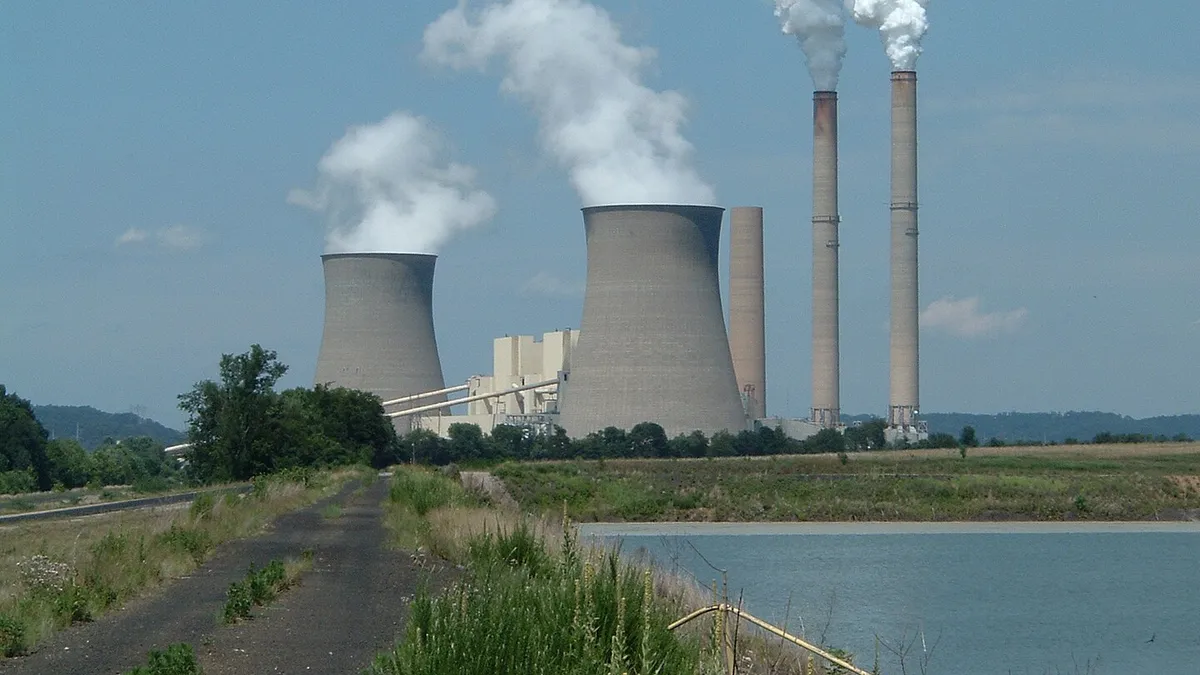Dive Brief:
- The North Carolina Environmental Management Commission has issued a draft response to federal coal ash rules passed two years ago, but Southeast Energy News reports the proposal is largely in line with the federal standards while critics had wanted more stringent rules.
- North Carolina, however, is one of a few states already working on coal ash disposal, and its own proposals predate the U.S. Environmental Protection Agency’s 2014 rule.
- Coal ash disposal came to the forefront two years ago in North Carolina when a pipe at one of Duke Energy’s plants ruptured and released 39,000 tons of toxic sludge into the Dan River.
Dive Insight:
North Carolina's existing coal ash rules are already more stringent in some spots than the proposed EPA rule, but environmental advocates say they wanted additional protections.
In April, North Carolina’s Department of Environmental Quality pledged "it will go beyond state and federal requirements to ensure minority communities are not negatively impacted by Duke Energy coal ash landfills." But the state's proposed compliance rules do not do that, Blue Ridge Environmental Defense League's Therese Vick told Southeast Energy News.
"EPA’s rules were meant to be a foundation to build upon,” she said. “Even though North Carolina can have rules more stringent than EPA, this proposal is the bare minimum required.”
Earlier this year, the North Carolina Department of Environmental Quality directed Duke to excavate coal ash from all of its holding ponds in the state by 2024, but a new law would allow for cap-in-place solutions, so long as Duke can provide permanent drinking water solutions for residents.
The 2014 EPA Coal Combustion Residual Rule (CCR) was intended to provide a path forward for utilities and states trying to manage coal ash, but it is not enforced by the federal government. Instead, states develop rules and compliance is left up to citizen lawsuits.
The CCR rules established technical requirements for coal ash ponds, but placed the waste under subtitle D — and not subtitle C — of the Resource Conservation and Recovery Act. That designation means EPA considers coal ash a solid waste, rather than a hazardous one, which would require more stringent regulations.
Mark McIntire, director of environmental policy at Duke, told Utility Dive in May the company faces more stringent standards from the state than the federal regulation.
“The NC law came before the CCR [rule],” he said. “We find that NC CAMA that is specific to NC is generally driving decision making on a management perspective on coal ash … From a comparison perspective the CAMA is generally a good bit more stringent.”















